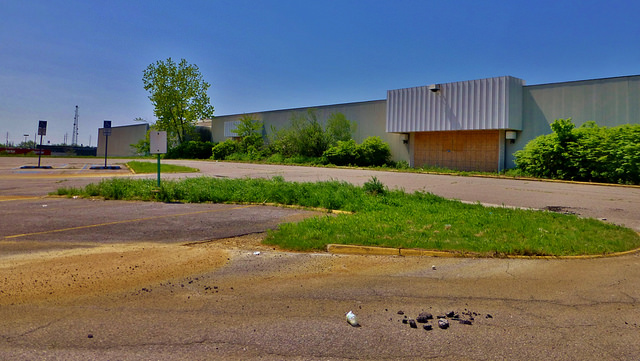Now What? A Campus Gift Plants the Seed for Rural Economic Development
/
It's election season, and needless to say, there's a lot of hand wringing about how America can stay competitive in a highly globalized economy.
More often than not, this debate is waged through the lens of manufacturing jobs, or lack thereof, but many grantmakers and philanthropists are looking toward other sectors for potential growth (renewable energy being the most obvious).
Recent news out of Raleigh, North Carolina, points to another promising niche: plant sciences.
N.C. State University received a $45 million grant from the Golden LEAF Foundation to fund the construction of a massive plant sciences research complex. The facility is for the North Carolina Plant Sciences Initiative, a partnership between the university and the N.C. Department of Agriculture and Consumer Services, and the goal is nothing less than to make North Carolina a global center for innovations in plant sciences.
(A quick clarifying aside for those of you who slept through biology class: For our purposes, we'll define "plant sciences" as "the science of plant life and a branch of biology." If the term rings a bell, it's likely because we keep a close eye on the Moore Foundation, one preeminent philanthropic funder of plant sciences initiatives.)
OK, with that out of the way, let's get back to the subject at hand, and most strikingly, the dollar amount involved. A hefty $45 million isn't pocket change. It suggests that the brains behind this operation sense a viable—for lack of better term—business opportunity. And it's easy to see why. Population is growing exponentially—fun fact: India's population will reach 1.8 billion by 2050!—and there needs to be enough food to go around.
And so Golden LEAF officials said the grant should help improve crop yields, introduce new crop and plant varieties, and reduce costs for animal feed.
What's more, the investment serves a dual purpose by providing economic opportunities for residents in rural areas. "Our board members recognize that growing agriculture grows rural communities," Dan Gerlach, president of Golden LEAF, said in a statement.
When you consider this latter benefit, it's also easy to see why the foundation bought in to the project. As we recently noted while surveying the state of philanthropy in North Carolina, there's been a big push to bring philanthropy to the rural areas of the state. And a significant portion of the big money flowing through the state comes from the former titans of the tobacco industry, including—you guessed it—the Golden LEAF Foundation.
Established from the proceeds of a national tobacco settlement, the foundation works in the state's poorest counties, which once depended upon tobacco to boost their economies in healthy and sustainable ways. Check out their comprehensive grants database here.
Ultimately, this gift speaks to similar challenges facing regions reliant on transitional economies. Whether it's the exodus of manufacturing jobs from the Rust Belt, an influx of virtual and brick and mortar competitors into casino-based economies out West, or the anticipated demise of the coal industry in Appalachia, no industry lasts forever.
The challenge, therefore, is creating a roadmap for what comes next. Golden LEAF's give suggests the philanthropic dollars can play a pivotal role in facilitating this transition.
Related:








